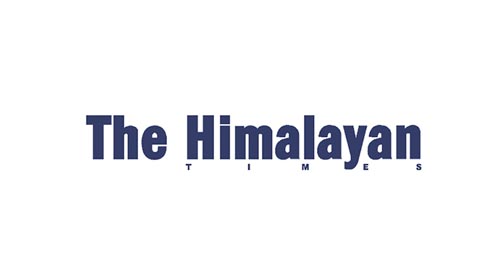EDITORIAL: Cut cost of expressway
While the cost of the fast track should be cut as much as possible, the govt should also approve its DPR without further delay
Prime Minister K P Sharma Oli has raised serious concern over the price escalation of the 76.2-km-long Kathmandu-Nijgadh fast track since it was handed over to the Nepali Army (NA) in 2016. After receiving the Detailed Project Report (DPR) from a South Korean firm, Soosung Engineering and Consulting, on October 2 last year, the NA, which has been assigned to build it within four years from the date of approval of the DPR, estimates it will cost nearly Rs 180 billion, Rs 68 billion more than what had been estimated by an Indian firm, Infrastructure Leasing & Financial Services (IL&FS), in 2015. A Cabinet meeting, led by the then Oli-government in 2016, had decided to have it built by the NA, which has already completed opening the tracks, where light vehicles can ply during the dry season. After the Korean firm submitted the DPR, the NA had suggested changing its alignment at Khokana and Bungamati areas in Lalitpur, following protests by the locals who fear that the fast track would destroy their cultural heritage.
It is uncertain when the project, which will act as a lifeline between Kathmandu and the Tarai and also shorten the travel distance by several hours, will actually start as the Cabinet has yet to approve the revised DPR. Amidst concerns raised by the parliamentary panels and the Cabinet about the delay in building the expressway, PM Oli held discussion with the line ministries and NA chief Purna Chandra Thapa on Monday and sought details about the progress made on it. The fast track is to be linked to the proposed Nijgadh International Airport (NIA), whose construction has also not started as its DPR and cost estimates have not been finalised. These two projects need to be constructed together to ease the growing air traffic congestion at Tribhuvan International Airport (TIA).
During the meeting, the PM expressed his reservation over the escalated cost. The actual cost estimated by the Korean firm has not been disclosed, and this is perhaps why the Cabinet has delayed the approval of the fast track’s DPR. The PM asked the NA why the project cost had gone up so high compared to the previous DPR, which had projected a cost of around Rs 112 billion. Cost overruns of the much-hyped expressway can be attributed to the price rise in construction materials due to delay in its construction and institutional inability to carry out such a mega project. The PM is learnt to have asked the NA to find ways to cut the cost. Following the PM’s instruction, the meeting has formed a panel comprising officials from the Ministry of Physical Infrastructure and Transport and NA to look into how the project cost could be minimised. No major projects are completed on time due to lack of institutional capacity, lack of coordination between the line ministries and, above all, due to resource crunch. Envisaged earlier as an alternative highway to the Prithvi Highway in 1994, it was planned as an expressway only in 2008 after Nijgadh was proposed as an alternative airport to the TIA. In order to expedite its construction on time, the government should not dilly-dally in finalising the DPR prepared by the Korean firm. People have the right to know about the actual cost of the project, which will revitalise the country’s economy.
Ensure milk quality
The Nepalis have developed the habit of disputing anything the government tries to do, and this has made it difficult for the authorities to implement rules, regulations and directives. The farmers of Kavre to the east of Kathmandu, for instance, have resented the dairy products directive issued by the government that bars the collection of milk in plastic containers. As a result, local milk collectors have stopped selling milk to the chilling centre of the Dairy Development Corporation, a government entity, at Tamghat of Panchakhal Municipality. Instead they are now selling their milk to private dairies.
The government must not back out from its stand and compromise on the quality of milk. It is also absurd why the private dairies should think they can exempt themselves from the directive. The Nepal Food Technology and Quality Control Division Office, Dhulikhel should strictly carry out the monitoring of the chilling and milk collection centres in Kavre, even if this demands police support. The people have the right to quality foodstuffs, and it is the duty of the government to see to it that it is not compromised under duress from anyone.






